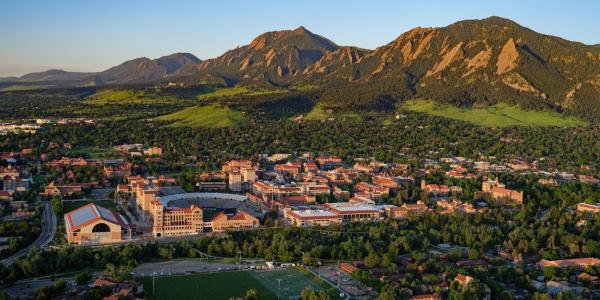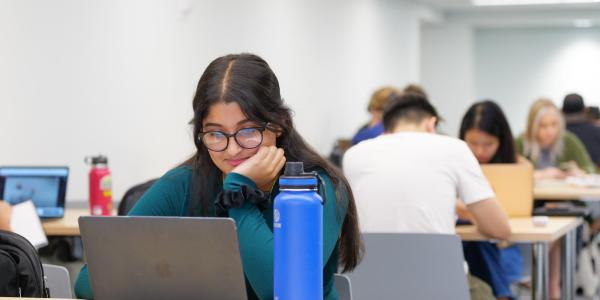
The University of Colorado Board of Regents heard a presentation from Chancellor Philip DiStefano on the economic impact of CU Boulder’s research innovation on the local economy, the state of Colorado and the nation through tech transfer, as well as the institution’s role in providing cultural opportunities for the community.
“The Boulder campus has the fortune of having wide-reaching impact across the state and nation,” DiStefano said.
DiStefano explained the domestic economic impact of commercialization activities at CU Boulder over the last five years amounted to $1.9 billion, according to the recently released Economic Impact of Tech Transfer on the State and National Economy report.
“This supported an estimated 11,545 jobs from 2014 to 2018, paying an estimated $732 million in wages,” DiStefano said. “Much of this activity occurred in our home state, providing an impact of $1.2 billion to Colorado’s economy.”
The study also estimated that Venture Partners at CU Boulder (formerly the Technology Transfer Office) activities from fiscal year 2014–18 accounted for:
- $10.1 million in licensing revenue to CU Boulder (fees CU Boulder collects for allowing other entities to use technologies it owns)
- $48.7 million in commercialization-specific grants awarded to CU Boulder
- $151.1 million in inferred sales by licensees related to CU technology
- $593.6 million in capital funding raised by startup companies commercializing CU Boulder technologies
- 223 license and option agreements signed (which grant companies rights to proprietary CU Boulder technology and intellectual property)
- 40 startup ventures spun out of CU Boulder technology
Cultural impact
In addition to this economic impact, DiStefano pointed out that CU Boulder attracts a number of people each year to cultural events, from our museums to theater and dance.
“We offer a broad spectrum of speakers, performing arts, exhibits and experiences to the community,” DiStafano said. “We estimate nearly 592,000 people visit our campus every year to attend these events and exhibits.”
DiStefano added, not only do these visitors boost our local economy, these cultural offerings weave a community fabric, enrich our quality of life and offer broad perspectives.



